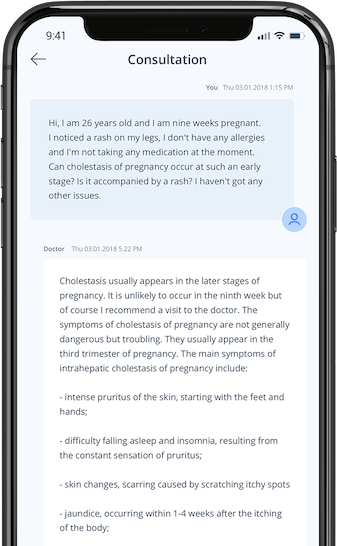How Does Nutrition Impact General Health?
Positive eating habits affect various aspects of well-being:
- Nutrient Intake: A balanced diet includes a diverse array of essential elements such as carbohydrates, proteins, fats, vitamins, and minerals. These vital components contribute to bodily functions like energy production, cell repair, immune system support, and more.
- Weight Management: The food we consume directly impacts our weight. Consuming more calories than needed can lead to weight gain, while eating fewer calories can result in weight loss. Maintaining a balanced weight is crucial for preventing conditions like obesity, heart disease, and diabetes.
- Disease Prevention: A diet rich in fruits, vegetables, whole grains, lean protein, and healthy fats can help reduce the risk of chronic diseases like heart disease, diabetes, and certain types of cancer.
- Cardiovascular Health: Foods low in saturated and trans fats, and high in fiber, can promote cardiovascular health by reducing cholesterol levels and maintaining optimal blood pressure.
- Musculoskeletal Health: Adequate intake of calcium and vitamin D from sources like dairy products, leafy greens, and fortified foods can help maintain strong bones and prevent conditions like osteoporosis.
- Gastrointestinal Health: A diet rich in fiber and probiotics can promote a balanced gut microbiome, which is linked to improved digestion, enhanced immune function, and even better mental health.
- Mental Health, Vitality, and Energy: Omega-3 fatty acids found in fatty fish, walnuts, and flaxseeds are linked to cognitive performance and can contribute to maintaining brain health. A balanced diet can also lead to increased energy levels and overall vitality.
It's important to note that individual dietary needs may vary due to factors like age, gender, physical activity, and current health status. Consulting a medical expert or certified nutrition specialist can help tailor a diet plan to meet your unique health goals. Adopting a long-term approach to diet and well-being involves gradually incorporating positive changes into your eating habits, rather than seeking quick fixes or extreme restrictions.
Physician-Recommended Diets:
- The Mediterranean Diet: This diet focuses on weight management and emphasizes reducing the intake of sugar, red meat, and saturated fats while prioritizing nuts, fruits, vegetables, and other healthful foods. Adopting this diet offers numerous benefits, including cancer prevention, weight loss support, diabetes management, and improved heart and brain health.
- The Dietary Approach to Stop Hypertension (DASH) Diet: Designed for the prevention and management of high blood pressure, this diet is endorsed by the National Heart, Lung, and Blood Institute. It encourages the consumption of foods like whole grains, fruits, lean protein, vegetables, and low-fat dairy, which are rich in essential nutrients known for their ability to lower blood pressure.
- The MIND Diet: This diet combines elements of the Mediterranean and DASH diets, focusing on foods that positively impact brain health. It recommends increased consumption of berries, nuts, and leafy greens to reduce the risk of Alzheimer's disease.
- The Weight Watchers (WW) Diet: Tailored for individuals seeking weight loss and improved well-being, this diet is based on the SmartPoints system, which assigns point values to foods and beverages based on their nutritional content.
- The Flexitarian Diet: This diet combines flexible and vegetarian approaches, focusing on the benefits of adopting a plant-based lifestyle. It encourages increased plant consumption while reducing meat intake.
- The Volumetrics Diet: This diet aims to counter hunger by reducing the energy density of meals. Foods are categorized into four groups based on their density.
- The Mayo Clinic Diet: This diet focuses on adopting a healthier lifestyle and achieving weight loss by replacing unhealthy eating habits with positive ones.
- The BRAT (banana - rice - applesauce - toast) Diet: Designed to manage acute conditions like vomiting, nausea, and diarrhea, this diet involves consuming bland foods with low fiber content.
- The Therapeutic Lifestyle Change (TLC) Diet: Created to eliminate cholesterol from diets that promote heart health, this diet emphasizes substantial consumption of fruits, vegetables, grains, pasta, and lean meats.
Advice for Patients
Changing your eating habits can be challenging, but with careful meal planning, lifestyle adjustments, and mindful eating strategies, success is attainable. Consulting a nutrition specialist or medical professional can offer the most effective guidance. It's crucial to avoid unsustainable diets that could lead to a "crash", making it more beneficial to seek professional advice for long-term success.
- The Role of Diet in the Prevention and Treatment of Inflammatory Bowel Diseases
- Dietary Patterns and All-Cause Mortality: A Systematic Review
- Mediterranean Diet and Cardiovascular Health: An Historical Perspective
- Mediterranean Diet Pyramid: A Cultural Model for Healthy Eating
- Mediterranean Diet - StatPearls
- Meat Consumption Reduction in Italian Regions: Health Co-Benefits and Decreases in GHG Emissions
- TLC-Therapeutic Lifestyle Changes to Lower Cholesterol
- MIND Diet - Harvard T.H. Chan School of Public Health
- BRAT Diet - Shore Gastroenterology Associates
- Mediterranean Diet - StatPearls








